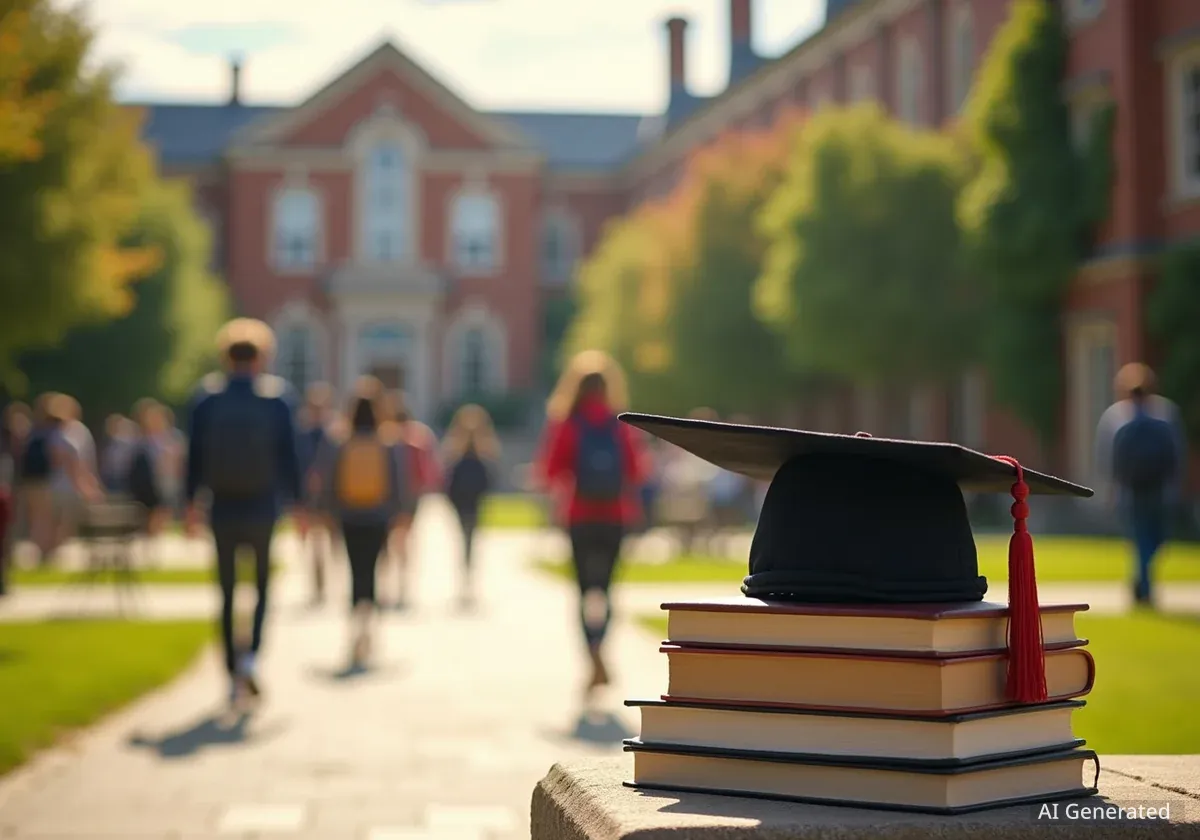Virginia State University (VSU) has achieved a significant milestone in the latest U.S. News & World Report rankings for Historically Black Colleges and Universities (HBCUs). The university climbed 12 positions, marking the largest single-year advancement of any HBCU on the list. VSU is now ranked 11th nationally among all HBCUs.
This notable rise also places the university in a tie for 5th place among all public HBCUs in the United States. The annual rankings are a widely recognized benchmark for academic quality and institutional performance in higher education.
Key Takeaways
- Virginia State University is now ranked 11th among all Historically Black Colleges and Universities by U.S. News & World Report.
- The university moved up 12 spots, the most significant jump by any HBCU in this year's rankings.
- VSU is also tied for the 5th position among public HBCUs nationwide.
- The rankings consider factors like graduation rates, faculty resources, and financial strength.
Details of the Ranking Improvement
Virginia State University's advancement from 23rd to 11th place represents a substantial recognition of its ongoing efforts to enhance academic programs and student outcomes. This 12-position leap is a key indicator of the university's positive trajectory and growing reputation on a national scale.
In addition to its overall HBCU ranking, VSU also saw improvements in other important categories. The university strengthened its standing among Regional Universities and Top Public Schools, demonstrating broad-based progress across multiple evaluation metrics.
The achievement places VSU among the top tier of HBCUs. For context, fellow Virginia institution Hampton University secured the 7th spot on the same list, highlighting the strength of HBCUs within the state.
By the Numbers: VSU's Profile
- Total Undergraduate Enrollment: 5,129 (Fall 2024)
- Campus Size: 231 acres
- Student-to-Faculty Ratio: 14:1
- Academic Calendar: Semester-based
How U.S. News Determines Rankings
The U.S. News & World Report rankings are based on a comprehensive methodology that assesses multiple aspects of an institution's performance. Understanding these factors provides insight into what drives a university's position on the list. The evaluation is designed to provide a holistic view of academic quality.
Core Evaluation Metrics
Several key areas are weighted to calculate the final score for each university. These metrics are critical for prospective students and families evaluating their options.
- Graduation and Retention Rates: This is a significant component, measuring how many students successfully complete their degrees and how many return for subsequent years of study. High rates suggest strong student support and satisfaction.
- Faculty Resources: This category examines factors like class size, faculty salaries, and the proportion of full-time faculty with the highest degrees in their fields. A low student-to-faculty ratio, such as VSU's 14:1, is viewed favorably.
- Financial Resources: The financial strength of a university is also considered. This metric looks at per-student spending on instruction, research, and student services, indicating the level of investment in the student experience.
- Peer Assessment: The reputation of a university among its peers is also factored in. Presidents, provosts, and deans of admissions at other institutions are surveyed to rate the academic quality of peer schools.
VSU's significant climb suggests marked improvements across several of these critical areas, reflecting a concerted institutional effort to bolster its academic and operational strengths.
The Importance of HBCU Rankings
Historically Black Colleges and Universities were established before 1964 with the principal mission of educating Black Americans. Today, they remain vital institutions that play a crucial role in providing educational opportunities and fostering diverse leaders. Rankings specific to HBCUs help highlight their unique contributions and successes within the landscape of American higher education.
Impact on the VSU Community
A higher national ranking can have a wide-ranging positive impact on a university. For Virginia State University, this improved standing is expected to boost student recruitment, attract talented faculty, and increase engagement with alumni and donors.
Prospective students often consult rankings as a primary tool when creating their list of potential colleges. A top-tier ranking makes an institution more visible and attractive, potentially leading to a larger and more competitive applicant pool.
"A significant rise in national rankings is not just a number; it is an affirmation of the hard work of our students, faculty, and staff. It reflects our commitment to academic excellence and student success, and it energizes our entire community to continue striving for greatness." - Higher Education Analyst
Furthermore, such recognition can enhance the value of a degree from the institution. Current students and alumni alike can take pride in their alma mater's growing prestige, which can translate into stronger professional networks and career opportunities.
Future Outlook for Virginia State University
This achievement serves as a powerful momentum builder for Virginia State University. The administration will likely leverage this new ranking to advance its strategic goals, which may include expanding research initiatives, launching new academic programs, and upgrading campus facilities.
Maintaining and improving upon this position will require sustained effort. The university will need to continue focusing on the core metrics that drive the rankings, particularly in the areas of student retention and post-graduation success.
As VSU continues to grow and evolve, its performance in national rankings will be a key benchmark of its success. This year's historic jump signals that the university is on a firm path toward achieving even greater recognition and influence in the years to come.





